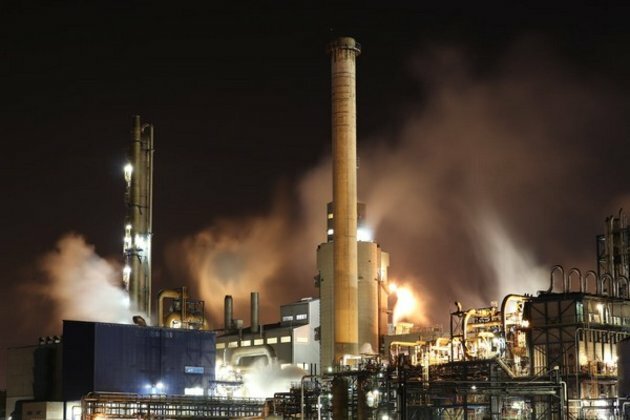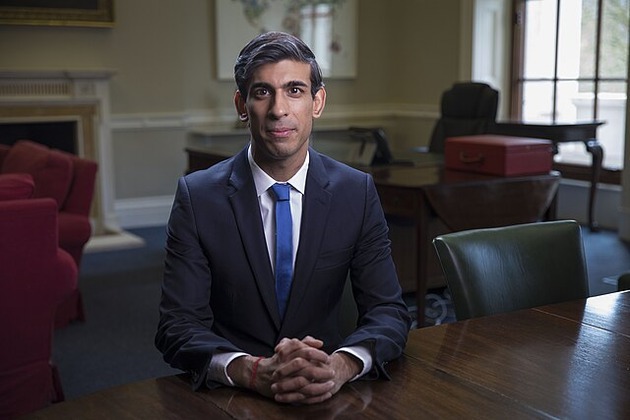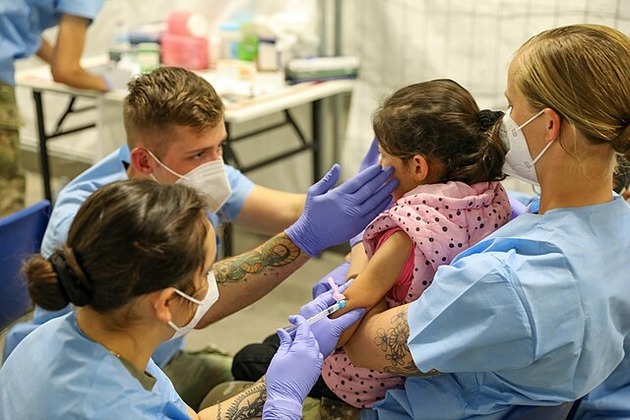Climate warming may expose species across the world to deadly temperatures: Study
ANI
22 May 2023, 01:33 GMT+10

London [UK], May 22 (ANI): According to a new study led by a UCL researcher, climate change is likely to rapidly push species over tipping points when their geographic ranges experience unforeseen temperatures.
The study, published in the journal Nature EcologyEvolution, predicts when and where climate change will expose species all around the world to potentially deadly temperatures.
The researchers from UCL, the University of Cape Town, the University of Connecticut, and the University of Buffalo examined data from over 35,000 species of animals and seagrasses (including mammals, amphibians, reptiles, birds, corals, fish, cephalopods, and plankton) from every continent and ocean basin, as well as climate projections up to 2100.
The researchers investigated when areas within each species' geographical range will cross a threshold of thermal exposure, defined as the first five consecutive years where temperatures consistently exceed the most extreme monthly temperature experienced by a species across its geographic range over recent history (1850-2014).
Once the thermal exposure threshold is crossed, the animal is not necessarily going to die out, but there is no evidence that it is able to survive the higher temperatures - that is, the research projects that for many species there could be an abrupt loss of habitat due to future climate change.
The researchers found a consistent trend that for many animals, the thermal exposure threshold will be crossed for much of their geographic range within the same decade.
Lead author Dr Alex Pigot (UCL Centre for BiodiversityEnvironment Research, UCL Biosciences) said: "It is unlikely that climate change will gradually make environments more difficult for animals to survive in. Instead, for many animals, large swaths of their geographic range are likely to become unfamiliarly hot in a short span of time.
"While some animals may be able to survive these higher temperatures, many other animals will need to move to cooler regions or evolve to adapt, which they likely cannot do in such short timeframes.
"Our findings suggest that once we start to notice that a species is suffering under unfamiliar conditions, there may be very little time before most of its range becomes inhospitable, so it's important that we identify in advance which species may be at risk in coming decades."The researchers found that the extent of global warming makes a big difference: if the planet warms by 1.5C, 15% of species they studied will be at risk of experiencing unfamiliarly hot temperatures across at least 30% of their existing geographic range in a single decade, but this doubles to 30% of species at 2.5C of warming.
Dr Pigot added: "Our study is yet another example of why we need to urgently reduce carbon emissions to mitigate the harmful effects climate change is having on animals and plants, and avoid a massive extinction crisis."The researchers hope that their study could help with targeting conservation efforts, as their data provides an early warning system showing when and where particular animals are likely to be at risk.
Co-author Dr Christopher Trisos (African Climate and Development Initiative, University of Cape Town) said: "In the past we've had snapshots to show the impact of climate change, but here we are presenting the data more like a film, where you can see the changes unfold over time. This shows that for many species the risk is a bit like everything, everywhere, all at once. By animating this process, we hope to help direct conservation efforts before it's too late, while also showing the potentially catastrophic consequences of letting climate change continue unchecked."The researchers say that this pattern of abrupt exposure may be an inevitable feature of living on a round planet - because of the shape of the Earth, there is more area available to species in environments near the hot end of what they are used to, such as in low-lying areas or near the equator. (ANI) Share
Share
 Tweet
Tweet
 Share
Share
 Flip
Flip
 Email
Email
Watch latest videos
Subscribe and Follow
Get a daily dose of Buffalo Breeze news through our daily email, its complimentary and keeps you fully up to date with world and business news as well.
News RELEASES
Publish news of your business, community or sports group, personnel appointments, major event and more by submitting a news release to Buffalo Breeze.
More InformationBusiness
SectionAI saves $500 million for Microsoft as layoffs reshape strategy
REDMOND, Washington: Artificial intelligence is transforming Microsoft's bottom line. The company saved over US$500 million last year...
FTC’s rule to ease subscription cancellations struck down by court
WASHINGTON, D.C.: A federal rule designed to make it easier for Americans to cancel subscriptions has been blocked by a U.S. appeals...
Musk’s X loses CEO Linda Yaccarino amid AI backlash, ad woes
BASTROP, Texas: In a surprising turn at Elon Musk's X platform, CEO Linda Yaccarino announced she is stepping down, just months after...
Ex-UK PM Sunak takes advisory role at Goldman Sachs
NEW YORK CITY, New York: Former British prime minister Rishi Sunak will return to Goldman Sachs in an advisory role, the Wall Street...
Gold ETF inflows hit 5-year high as tariffs drive safe-haven bets
LONDON, U.K.: Physically backed gold exchange-traded funds recorded their most significant semi-annual inflow since the first half...
PwC: Copper shortages may disrupt 32 percent of chip output by 2035
AMSTERDAM, Netherlands: Some 32 percent of global semiconductor production could face climate change-related copper supply disruptions...
United States
SectionAI saves $500 million for Microsoft as layoffs reshape strategy
REDMOND, Washington: Artificial intelligence is transforming Microsoft's bottom line. The company saved over US$500 million last year...
CDC: US records 1,288 measles cases, most since 1992 outbreak
ATLANTA, Georgia: The United States is facing its worst measles outbreak in more than three decades, with 1,288 confirmed cases so...
FTC’s rule to ease subscription cancellations struck down by court
WASHINGTON, D.C.: A federal rule designed to make it easier for Americans to cancel subscriptions has been blocked by a U.S. appeals...
Ex-UK PM Sunak takes advisory role at Goldman Sachs
NEW YORK CITY, New York: Former British prime minister Rishi Sunak will return to Goldman Sachs in an advisory role, the Wall Street...
Travelers can now keep shoes on at TSA checkpoints
WASHINGTON, D.C.: Travelers at U.S. airports will no longer need to remove their shoes during security screenings, Department of Homeland...
Gold ETF inflows hit 5-year high as tariffs drive safe-haven bets
LONDON, U.K.: Physically backed gold exchange-traded funds recorded their most significant semi-annual inflow since the first half...









